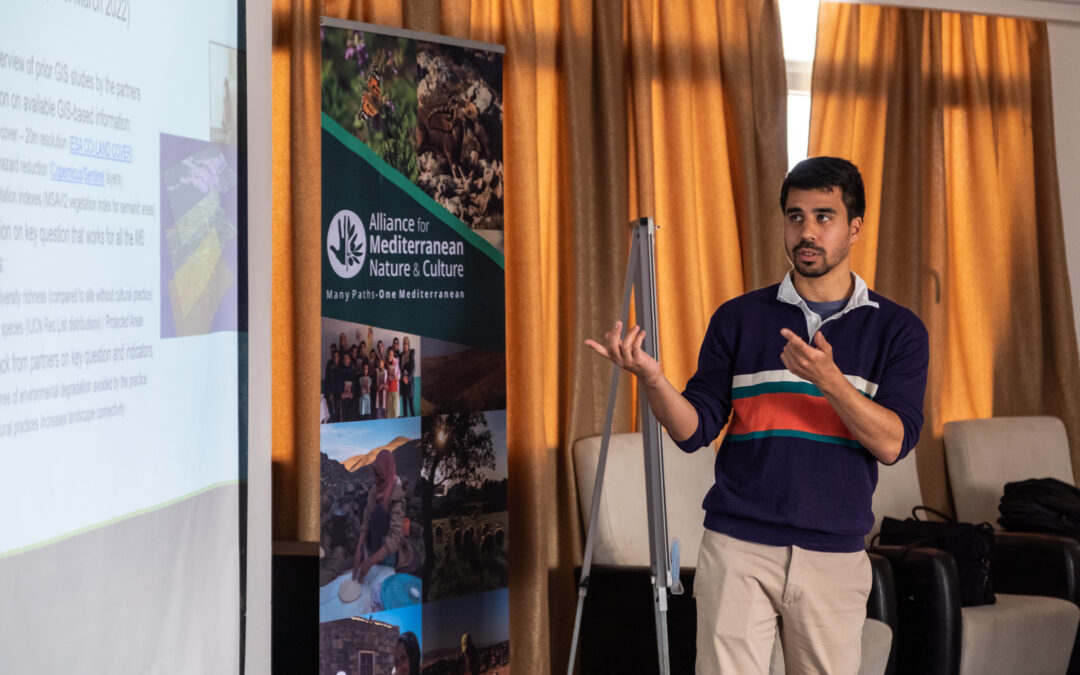Creating a common framework to assess the links between nature and cultural practices
Alliance for Mediterranean Nature & Culture (AMNC)

Field visit to a Sarıkeçili nomadic pastoralist family, 7th April 2022
Photo by: İnanç Tekgüç, Global Diversity Foundation and Karma Motion
The Alliance for Mediterranean Nature and Culture assessed the evidence of the environmental benefits of different cultural practices from the Mediterranean region at an international workshop in the city of Mersin, Turkey from 5-7th April 2022. We performed a joint assessment of these traditional cultural practices and worked towards establishing a common framework for measuring the benefits of the “cultural landscapes” in France, Greece, Lebanon, Morocco, Portugal, Spain, Tunisia and Turkey. By doing so, we aim to make the often seemingly intangible effects of these practices explicit and clear for varied audiences in the Mediterranean region.
Assessing common impact on biodiversity
We are eager to establish a common framework for assessing the links between cultural practices, biodiversity and the wellbeing of human communities in the Mediterranean landscapes, based on the experiences of the field sites. To this end, the members of the Alliance gathered in Turkey to create a comprehensive framework to measure the collective impact at the regional level with common indicators for all AMNC sites, despite the differences in ecosystem functioning, biodiversity and human practices between sites. The workshop also covered partners’ GIS-based biodiversity impact studies, to further detail the common biodiversity impact of our collective work. This common framework is ultimately expected to be a source of inspiration for other nature conservation efforts, with reference to the impact of cultural landscapes in conserving and enhancing biodiversity in relation to the well-being of human communities and empowerment of local livelihoods.
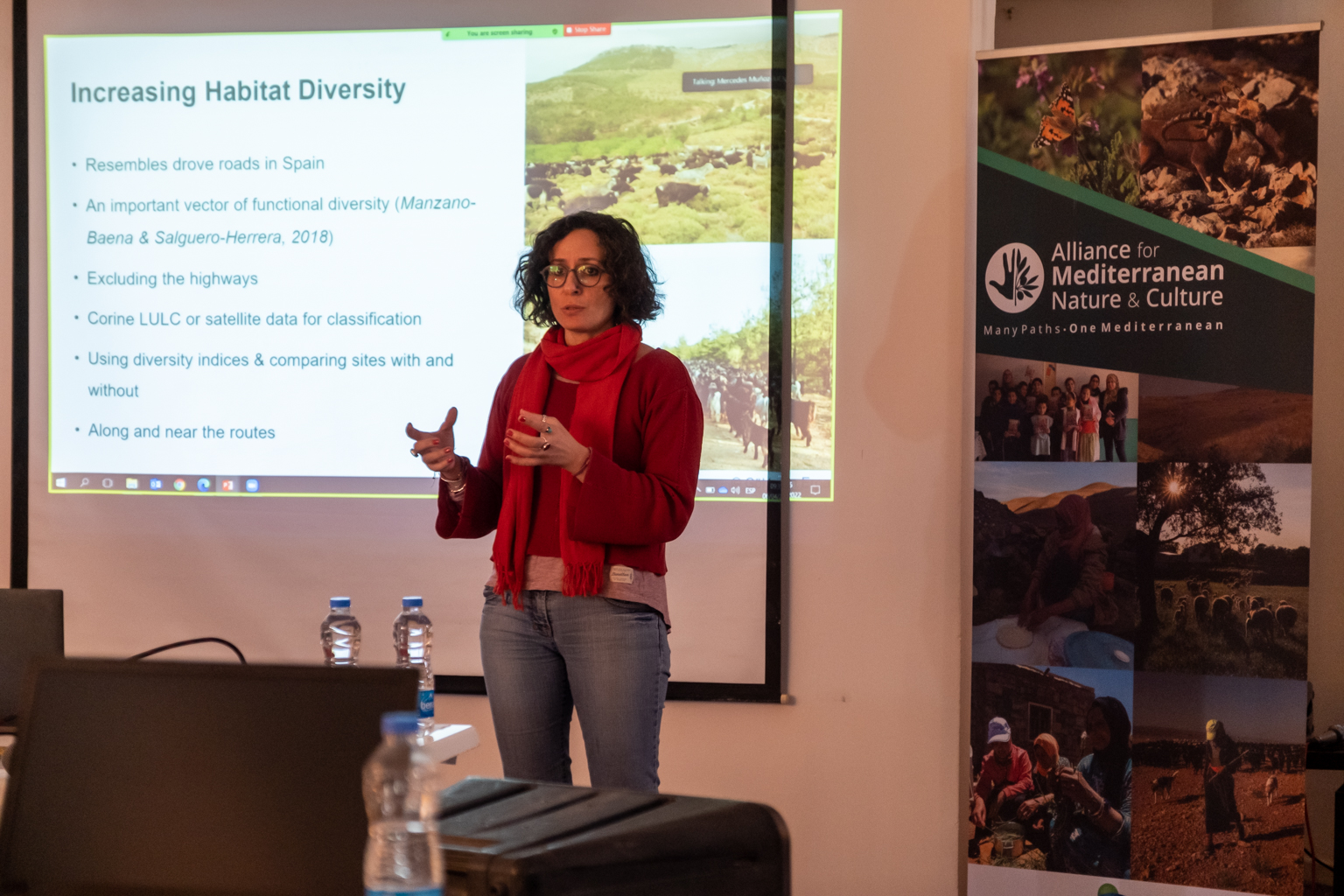
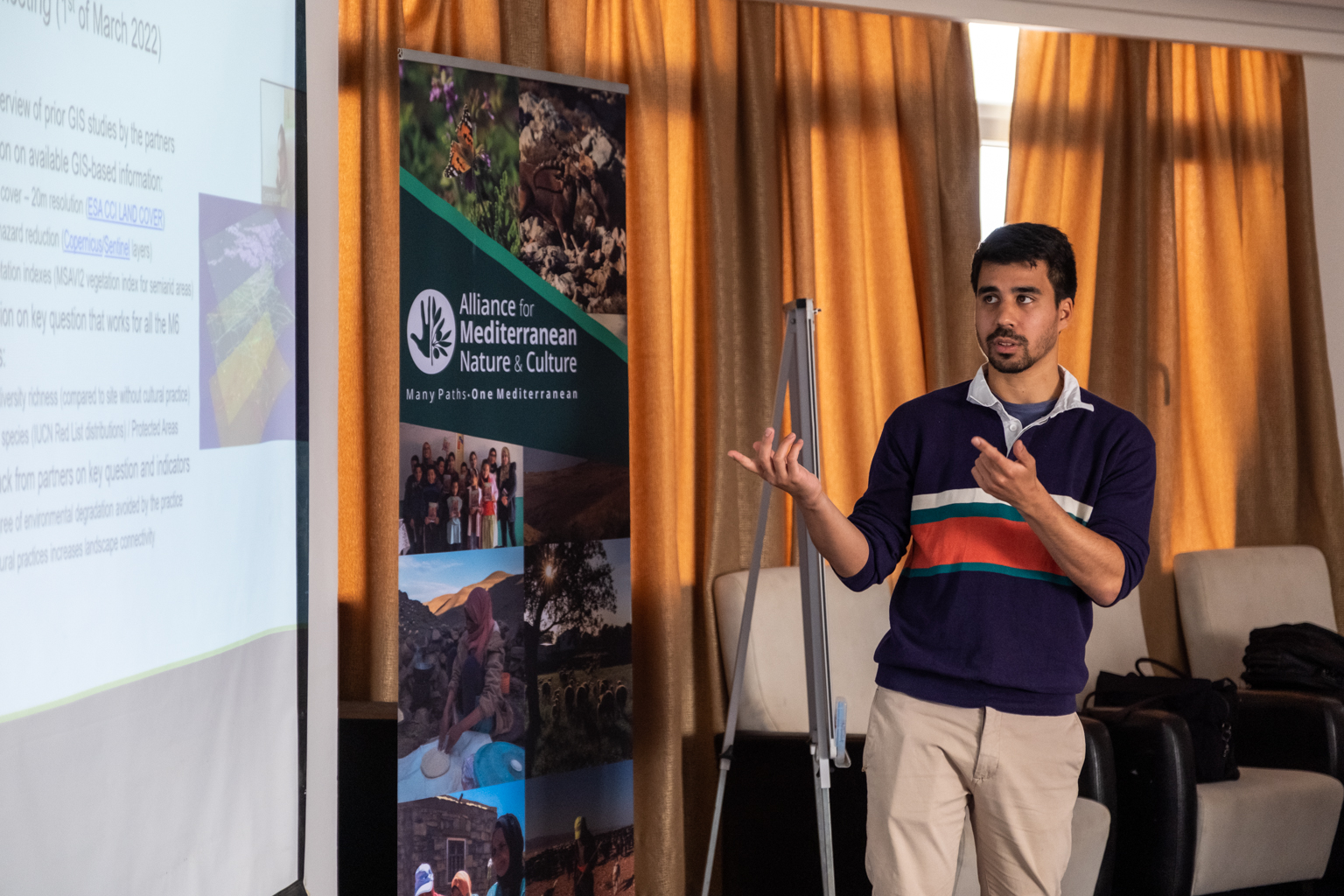
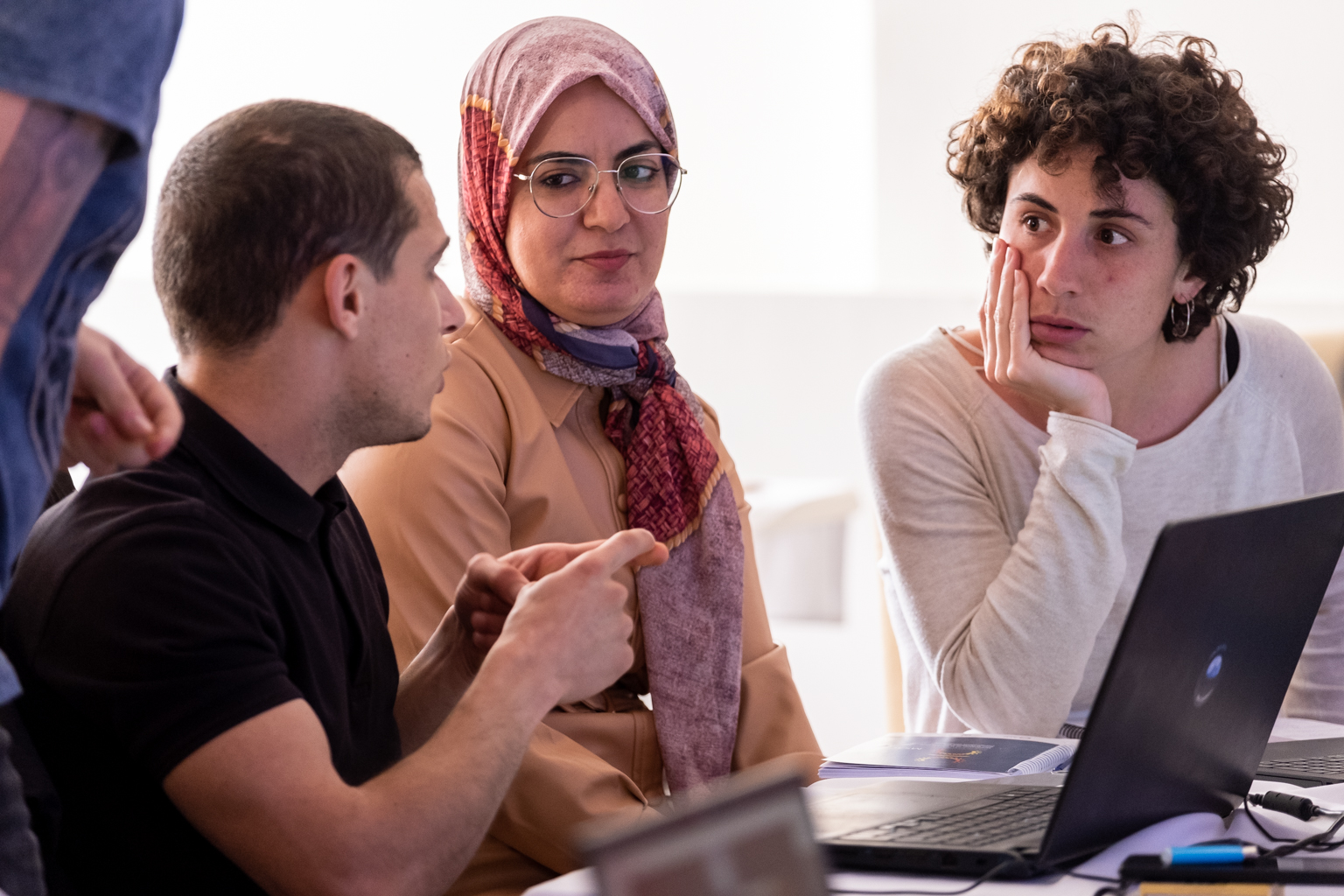
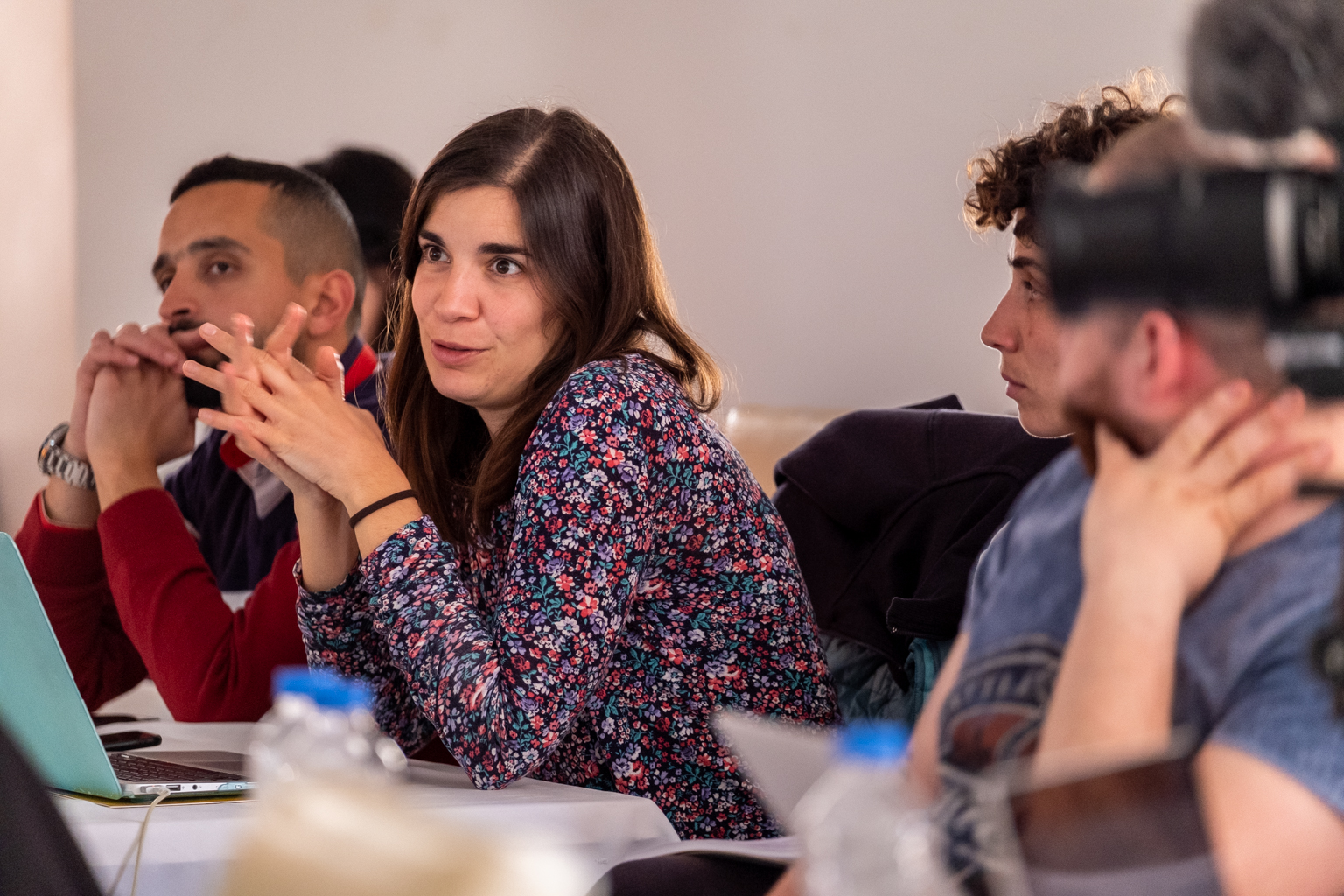
AMNC Biodiversity Impact Framework Workshop
Photos by: İnanç Tekgüç, Global Diversity Foundation & Karma Motion
“Building sound knowledge to assess and draw the line that connects these practices can be key to their potential recognition as Nature-based Solutions” stresses Mercedes Muñoz Cañas from the IUCN Centre for Mediterranean Cooperation.
“Acknowledging the key role of cultural practices in maintaining and enhancing biodiversity and in tackling the climate crisis, we, as a leading nature conservation Alliance in the Mediterranean, are dedicated to ensuring better assessment of these links at regional level, based on sound scientific data and demonstrated via common frameworks” said Engin Yılmaz the director of the Yolda Initiative and the coordinator of the AMNC.
We are looking forward to sharing the results of our biodiversity impact common framework and spreading the cultural landscapes approach further to other sites of the Mediterranean.
Nature-positive cultural practices in decline
In several areas of the Mediterranean, the abandonment of certain cultural land-use practices has been identified as a major cause of declining levels of biodiversity, as well as the loss of essential environmental services. The AMNC has embarked on a mission to improve knowledge and awareness of cultural landscapes, which are often linked to cultural, aesthetic or spiritual values. Due to lasting human influence, these biodiverse landscapes have evolved in tandem with Mediterranean societies and are now dependent on their influence to survive.
Among many other cultural practices we have been supporting, mobile pastoralism functions as a practice which supports the biodiversity of the landscapes it has maintained and serves as a climate crisis adaptation and mitigation tool. A field visit to the Sarikeçili community in Turkey provided a demonstration of how nomadic pastoralism creates natural firebreaks against the spread of wildfires, namely, tools against the consequences of the climate crisis.
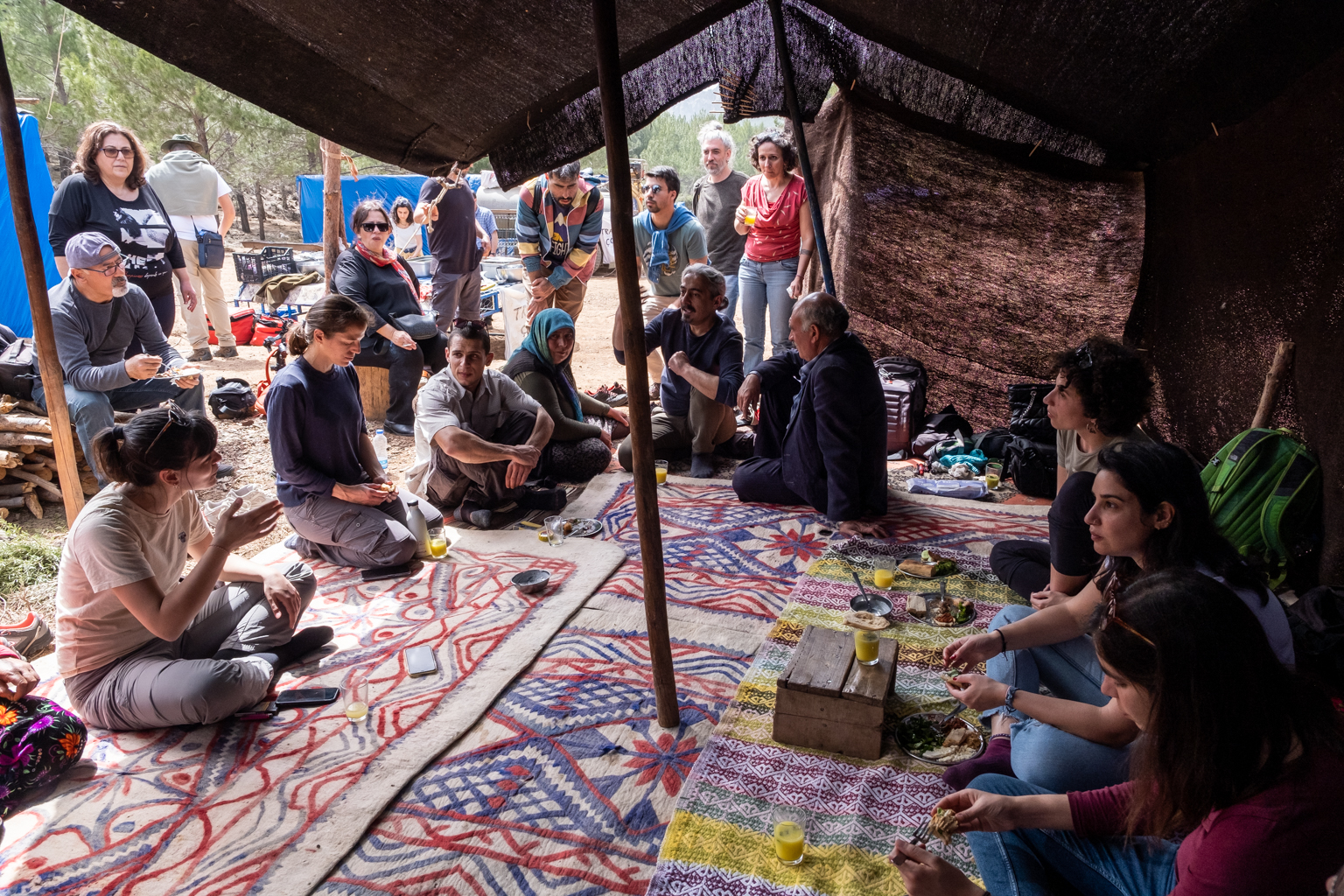
Field visit to a Sarıkeçili nomadic pastoralist family, 7th April 2022
Photos by: İnanç Tekgüç, Global Diversity Foundation & Karma Motion
“Sarikeçili nomadic pastoralists are guardians of an ancestral production system, which contributes to fire hazard reduction, as was the case during the wildfires in the Mersin provinceTurkey in 2021. The migration routes created by mobile pastoralists and their grazing ranges have proven to be highly beneficial in the formation and maintenance of natural firebreaks that prevent the spread, intensity and severity of fires. As we face the current climate crisis, ensuring access of these communities to forests and pastures is of utmost importance. This system has maintained grazing in natural areas where goats consume dry vegetation and leaf cover in the understory, which are the main biofuel for wildfires.”
– Paraphrased quote from Yolda Initiative’s statement on wildfires
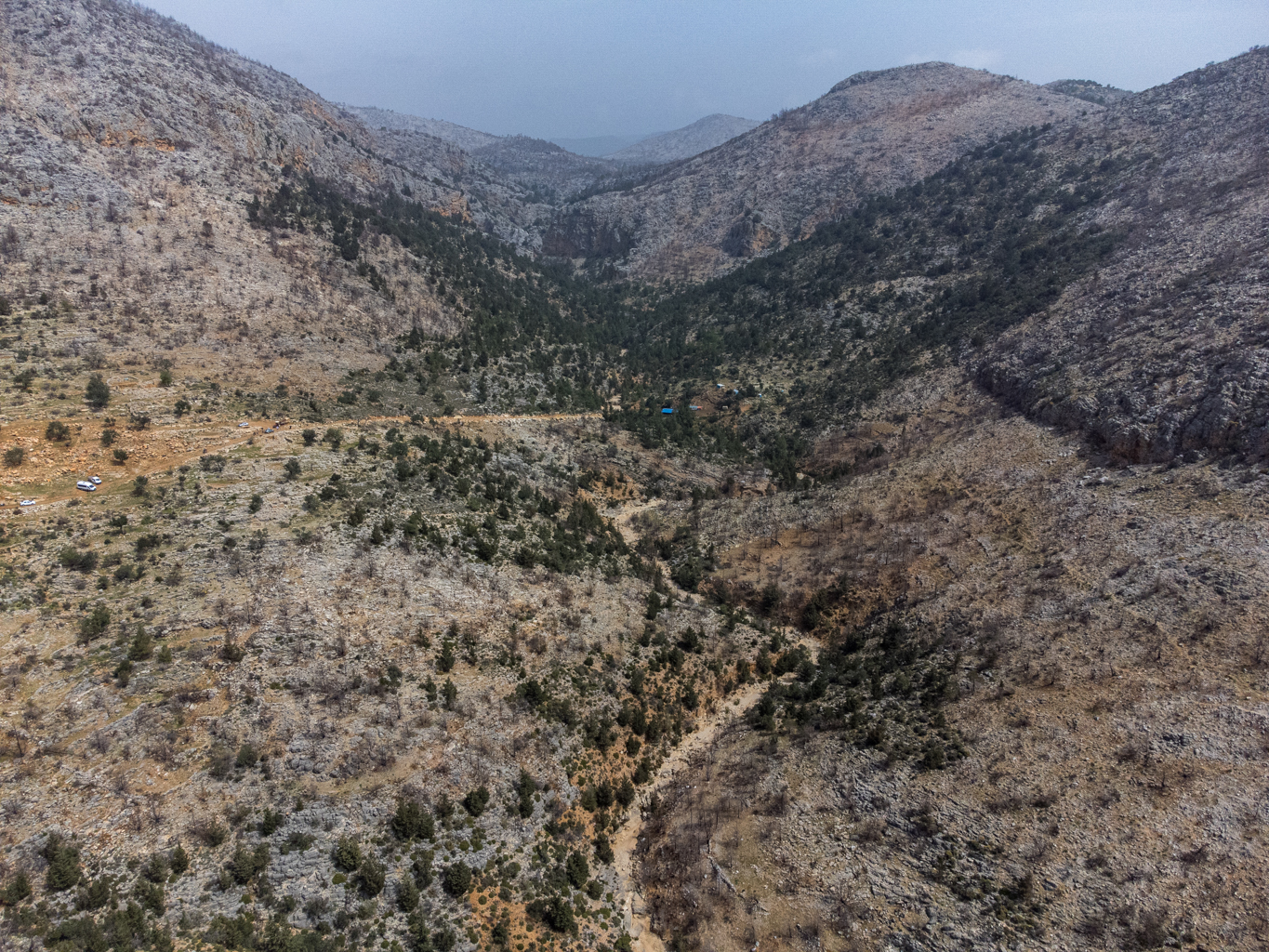
This site was exposed to huge wildfires in summer 2021 and the area maintained by nomadic pastoralism remained intact
Photos by: İnanç Tekgüç, Global Diversity Foundation & Karma Motion
Our work currently also covers a wide range of cultural practices across diverse landscapes. These include agricultural terraces in the Moroccan High Atlas, agrosilvopastoral management systems of Dehesas and Montados in the Iberian Peninsula, traditional governance systems such as Mandras in Greece and Himas in Lebanon, cork oak production in Tunisia, as well as different forms of mobile pastoralism and the preservation of certain local livestock breeds. We promote such practices by enhancing and disseminating scientific knowledge in tandem with traditional ecological knowledge, policy work, communications for change and local product commercialisation. We thus strive for a new model of nature conservation which puts community, culture and local knowledge at its core.

